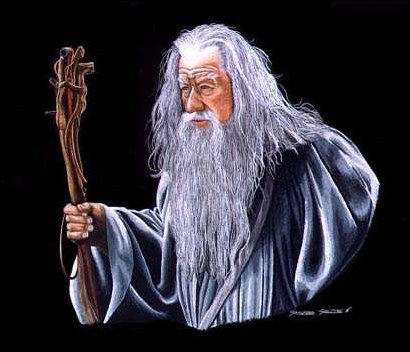Reading these works has provoked a bit of thought in me (I thought reading these books was to get away from thinking...) regarding their points about Christianity.
Essentially these sorts of books (Da Vinci Code, The Last Templar, The Templar Legacy) have a couple of main arguments: Christianity is not historically accurate and have unjustified supernatural beliefs, Gnostic works are more historically accurate and almost hyper-rational, and if the world discovers this, then Christianity will fall like a house of cards.
I'm not sure why authors of these religious thriller novels and (allegedly) non-fiction works like Holy Blood, Holy Grail, keep themselves locked into such problematic arguments.
- The basic tenants of Christian faith- virgin birth, Jesus' miracles, the resurrection, even Jesus existence- cannot be proven historically because the gospels weren't written by 'eye witnesses'. On one level, absolutely true. The gospels were written later. They were not by direct eye witnesses and cannot be demonstrated as historically accurate (even by cross-referencing among the gospels since they disagree on key events). But, the argument is not nearly so simple as these authors make it seem. First, Jesus existence is referred to earlier than in the gospels- by Jewish historian Josephus and Paul (whose letters are believed to pre-date the gospels), so at least that argument is very far from solid. Second, and important for the arguments of the authors, issues such as Jesus' miracles or resurrection cannot be dis-proven historically. There is no discovery that has, will, or can ever be made that will disprove these basic beliefs. Why? The negative cannot be proven. What would they find- a photograph of Jesus not performing a miracle? Even if the photograph existed (which it clearly cannot) some sort of statement/evidence that Jesus did not perform a miracle at a given moment does not preclude that he did at another. This line of reasoning by the Pilgrim doesn't provide any logical or evidentiary support for Christianity, but it demonstrates that the authors (Brown, et. al.) in question argue a case they cannot make.
- Gnostic works are more historically accurate and non-supernatural. Demonstrably false. The authors in this case cherry-pick the gnostic works- in my estimation simply to find what they can to support a pre-existing attitude and tell a compelling story, rather than because they found actual evidence in support of a new idea. The gnostic works- from Nag Hammadi and elsewhere- were written over a wide expanse of time. Some of them may have been written before at least some of the gospels (this is an area of significant scholarly disagreement. In particular, some argue that the Gospel of Thomas predates the canonical gospels.). Others, some of which are often used by the authors in question, may have been written significantly later than any of the canonical gospels. Furthermore, gnostic works are not hyper-rational, utterly lacking in mysticism and supernatural beliefs. Quite the opposite. In terms of supernaturality (if that's not a word, let's just pretend it is), the gnostics often held beliefs that today people who believe in something as seemingly wild as the resurrection, for example, would find very odd. Many gnostics believed that the transcendent god (the 'good god', if you will) was not the creator of the world/universe, but rather that a 'bad god' (perhaps even evil) created the world. They also believed in spiritual beings- often called aeons- that seem to be greater than angels. Polytheistic? Maybe. I'm not sure. The gnostics were not a people with a clear and coherent catechism, so it's hard to characterize their beliefs. But, it is easy to report that they were not the scientific rationalists the 'conspiracy theory' religious thriller authors claim.
- Finally, discovery and dissemination of the truths of the gnostics/Templars/Leonardo Da Vinci, will so shock the world- particularly the Christian world- that Christianity will crumble. Well, gnostic works have been referenced in books by those hoping to expose their 'heresy' for a very long time. The originals of many of the documents were discovered in 1940s. These authors keep repeating their versions of these documents, and their speculations about others who made 'discoveries' of the 'fiction' of Christianity. I have yet to see the chaos these authors say will ensue. Sunday will be upon us in a handful of hours, and Christians will gather all around the world (of course many don't wait until Sunday to meet, but you see what I'm saying). Apparently the 'truth' these authors purport to tell us is not so shocking. Or, perhaps, it is not so true.
Don't get me wrong. I read gnostic works. I've found a lot of wisdom in some. I've had my beliefs challenged by others. I go back to these texts regularly. I am always thrilled to hear of new discoveries (like the recent Gospel of Judas). There is much to be gained from these works. But, they are not what Dan Brown and his compatriots would have us believe.
I suppose that accuracy in reporting compels me to say I'll likely continue to read the thrillers from time to time as well.


No comments:
Post a Comment